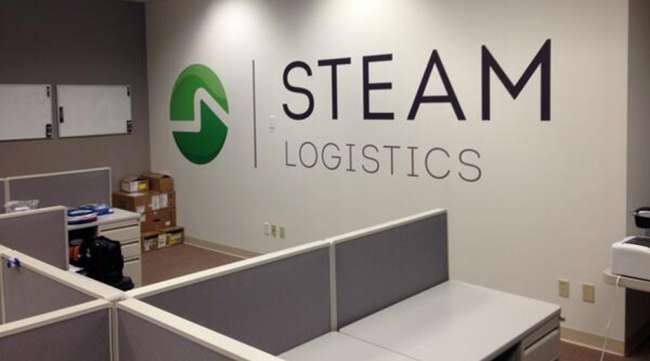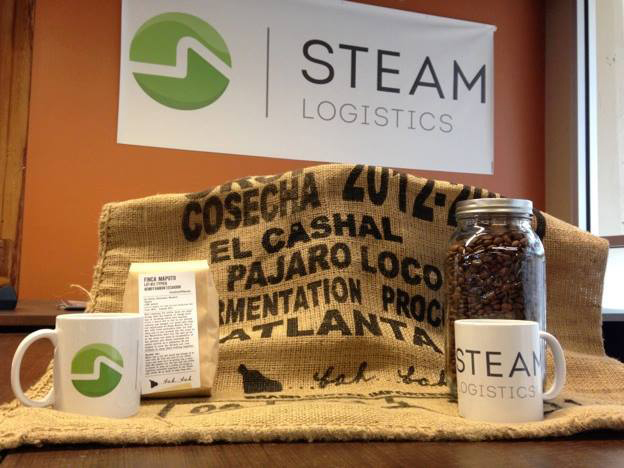Steam Logistics Continues International Growth Despite Tariff Threat

Despite growing concerns of a trade war, one of Chattanooga, Tenn.’s fastest-growing international companies still expects to grow by more than 60% this year shipping goods worldwide.
Steam Logistics, started in 2012 as the international arm of the third-party logistics business Access America Transport, was among the fastest-growing logistics companies in the country last year according to Inc. magazine. Jason Provonsha, the former Coyote and Access America executive who is CEO of Steam Logistics, predicts the company will maintain its healthy growth pace among the top-growing logistics companies again this year as the 6-year-old company continues to build its technology, reputation and partnerships with operations in about 70 countries.
The company ranked 254th on Inc’s list in 2017 with revenues of $13.6 million and should remain among the top 500 companies again this year.
“We have a very positive outlook overall,” Provonsha told the Chattanooga Rotary Club in a recent speech about the growth of Steam Logistics. “I am hopeful that [new international tariffs and trade restrictions] won’t be dramatic once all of the dust settles. We are very diversified in terms of the commodities that we ship, and we tend to have long term relationships that give us some confidence about the future.”
RELATED: Trump’s China tariffs will pinch US consumers, retailers warn
As Steam Logistics has grown from a startup firm to a global company generating more than $20 million a year in revenues, Provonsha said executives have learned to be more focused and disciplined, recognizing that company changes and pivots now can be more costly and disorderly to developing a common culture and direction.

Steam Logistics
“The biggest change we’ve had to make is really around focus,” he said. “The changes we are making have become much more disruptive as we have gotten larger, so we’ve had to really adapt our business to our current state. We’ve learned to be really deliberate about the priorities that we were setting and to make sure we communicate that to all of our employees.”
Steam Logistics has town hall meetings with its employees every month, billed as “the State of Steam,” in which employees come together over pizza to talk about the direction of the company.
Steam Logistics grew out of the success of domestic shipper Access America, the Chattanooga-based logistics company that sold to Coyote and later merged with UPS in a $1.8 billion deal. Provonsha, who previously worked at Access America, said moving freight around different countries presents far different challenges than just shipping goods across the United States.
UPS ranks No. 1 on the Transport Topics Top 100 list of the largest North American for-hire carriers.
“Even the same logistics field, when you compare the international side with the domestic side, it might as well be a different industry,” Provonsha said. “We were shocked to find how different it really is.”
Growing trade tensions are part of that different landscape. President Donald Trump, who claims the United States “has been ripped off for years,” is imposing a 25% tariff on all steel imports and a 10% tariff on all aluminum imports. Trump also wants to renegotiate major international trade agreements, including the North American Free Trade Agreement.
“As an American, I would like to see more balanced trade,” Provonsha said. “But as a business person at Steam, I recognize that nobody wins a trade war. The global economy has changed so much that we cannot go back to a place that once existed. Companies today are sourcing materials from so many different places around the world that if you start suddenly hitting them with major tariffs, the disruption that that would cause would be so counterproductive in the long term for the economy.”
RELATED: In prelude to trade war, US details tariffs on $50 billion of Chinese goods
But the Steam Logistics CEO said he expects “cooler heads will prevail as people who have a lot of lose on either side look at this issue more closely.”
“I can’t foresee a scenario where the amount of disruption that would happen to supply chains would be that dramatic,” Provonsha said, noting that so far his company has not noticed evidence of a slowdown in trading activity because of the new and pending tariffs.
Distributed by Tribune Content Agency, LLC



